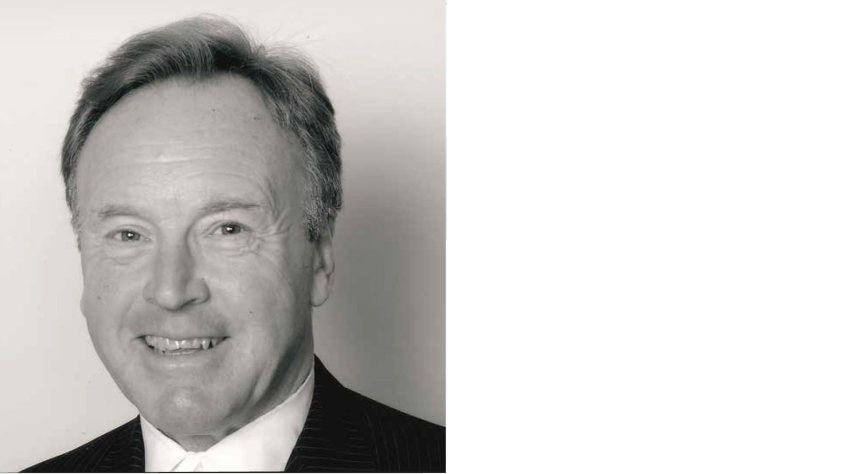“David McGee was a consummate professional and a dear friend to many. His contribution to the understanding and development of our parliamentary system is exceptional, if not unique,” said Professor Philip Joseph, Professor of Law at the University of Canterbury.
“His seminal text, Parliamentary Practice in New Zealand (1985), established David McGee as ‘the Erskine May of New Zealand’. Now, through four editions of his magnum opus, reference to the former House of Commons’ Clerk is otiose; it is simply now ‘McGee’. David gifted copyright of the text to the Office of the Clerk of the House of Representatives upon his retirement as Clerk in 2007. I was honoured to contribute to the parliamentary privilege chapters of the fourth edition, published in 2017.”
David McGee joined the Office of the Clerk of the House of Representatives in 1974, where he remained for 34 years. He was Clerk of the House for 22 years, from 1985 to 2007.
“David’s immense standing was acknowledged throughout the parliamentary precinct,” says Professor Joseph. “His reputation preceded him abroad. Clerks of Commonwealth Parliaments regularly sought David’s advice, and he frequently spoke at international parliamentary conferences.
“His standing was also appropriately recognised at home. In 2000, he was appointed Queen’s Counsel under the Royal prerogative criterion, ‘in recognition of [his] extraordinary contributions to the field of law’. Moreover, in 2009, the Victoria University of Wellington awarded him the degree of Doctor of Laws in recognition of his seminal text and other publications. Some expressed doubt whether McGee’s text was truly ‘academic’ and deserving of such high recognition, but such naysayers were in the minority. Few such texts are destined for posterity in the service of the national interest. McGee was genuinely deserving of this recognition, of which he was immensely proud.”
Sir Geoffrey Palmer KC would often seek advice and work closely with David during his time in Parliament. “It was my great good fortune to learn from David when I became an MP in 1979. Parliamentary procedure can be tricky, and he was a superb adviser on it, on Speakers’ Rulings and the legislative process. It was a mark of the professionalism and integrity of the man that all sides had confidence in him.
“David was a gentle and well-balanced human being with great skills and learning. He was not afraid of changing things – that is not an easy thing to accomplish in a Parliament. His achievements will live a long time in the Wellington annals of governance.”
As Clerk of the House, David appointed Debra Angus (who is now the Law Society’s Public Law Committee convenor) as the legal adviser to the Regulations Review Committee.
“I was on maternity leave and, like most lawyers, unfamiliar with parliamentary procedure. Dave was very supportive in helping me navigate the unique environment and setting a new direction for scrutiny of secondary legislation, as well as accommodating my caregiving role. In 1996, after the introduction of MMP reforms, I returned to the Office as a Legislative Counsel to provide legal support for committees and draft members’ bills and I worked closely with Dave on parliamentary legal issues. This was a very challenging and innovative time for parliamentary procedure, yet much of the change seemed to happen quite smoothly, and Dave was a huge factor in that successful transition.
“Dave’s knowledge of parliamentary procedure and parliamentary privilege was unsurpassed in the Commonwealth. He reflected that the legal highlight of his career was his involvement in the Prebble v Television New Zealand case at the Privy Council, with the Attorney-General and a Crown Counsel as amici curiae. If Dave disagreed with a judicial decision or a particular legal approach, he would write an article for publication in a legal journal - which would often be cited with more authority. He was highly sought after internationally to provide commentary or advice on parliamentary privilege issues.”
Chief Ombudsman Peter Boshier also paid tribute to David’s work. “David served as Ombudsman from November 2007 to May 2013. His work over those five-and-a-half years was invaluable. The cases he worked on were still being talked about when I started as Chief Ombudsman at the end of 2015, and are still influential today.
“David was deeply respected by both his colleagues and the government agencies he dealt with. On the surface, David appeared a quiet and unassuming man. But he had a unique ability to connect with people as an equal, and his wit was razor sharp. He was incisive, kind, witty and intellectual, possessing a rare ease of manner.
“David has made a big contribution to the mana of the Ombudsman. His work, both in Parliament and as Ombudsman, is a huge contribution to the integrity of democracy in New Zealand.”
David’s remarkable legacy and achievements will continue to live on, and impact many.

